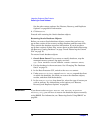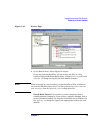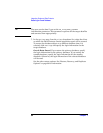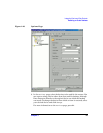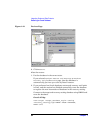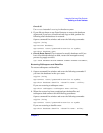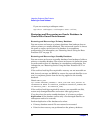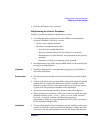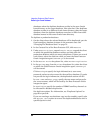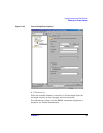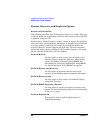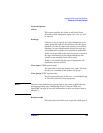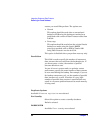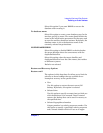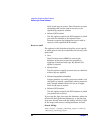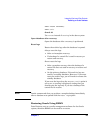
Integrating Oracle and Data Protector
Restoring an Oracle Database
Chapter 186
databases when the duplicate database resides in the same Oracle
home directory as the target database. Note also that if the duplicate
database resides in a different Oracle home directory than the target
database, then the duplicate database name has to differ from other
database names in that same Oracle home directory.
To duplicate a production database:
1. On the client where the selected database will be duplicated, put the
Oracle auxiliary database instance in the nomount state. See
“Changing The Database State” on page 73.
2. In the Context List of the Data Protector GUI, click Restore.
3. Under Restore Objects, expand Oracle Server, expand the client
on which the production database resides, and then click the
production database which you want to duplicate. If there are several
such clients, select the client on which you want the Data Protector
Oracle integration agent (ob2rman.pl) to be started.
4. In the Restore Action drop-down list, select Perform Duplication.
5. In the Options page, from the Client drop-down list, select the client
on which the Data Protector Oracle integration agent (ob2rman.pl)
will be started.
Click Settings to specify the login information (a user name,
password, and net services name) for the auxiliary database. If you do
not provide the login information, the duplication session will fail.
In User name and User group, specify the user name and group for
the OSDBA account, which will be used by the Data Protector Oracle
integration agent.
In Parallelism, specify the number of RMAN auxiliary channels to
be allocated for database duplication.
Set duplicate options. For information, see “Duplicate Options” on
page 90 or press
F1.
If you are creating a new database copy (not for standby), specify also
the Recover until option to recover the duplicated database until a
specified point in time.



